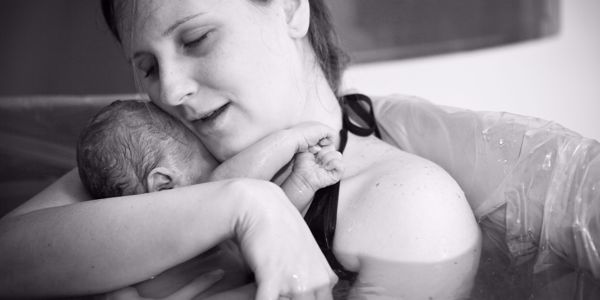You've finally drifted off to sleep after a lot of adjusting and pillow-fluffing when a sharp shooting pain sends your eyes flying open and your heart racing. You're facing the worst enemy of every sleeping pregnant person— a dreaded charley horse.
What causes leg cramps, or "Charley horses," during pregnancy?
Leg cramps occur when muscles in the calf contract suddenly and painfully. The exact cause of leg cramps during pregnancy is unknown; however, it may be related to changes in blood circulation or muscle strain from increased weight. Your unborn baby could be putting pressure on your veins and/or nerves, or it may be related to an increased need for vitamins and minerals such as calcium and magnesium.
How can you find relief from leg cramps during pregnancy?
During a charley horse, flex your foot toward your shin and massage the muscle spasm until it relaxes and the pain eases.
While you may not be able to eliminate leg cramps entirely during your pregnancy, there are some strategies that can be used to reduce them.
Tips to relieve leg cramps:
- Stay hydrated — increasing your liquid intake will improve circulation and could reduce the severity of leg cramps.
- Stretch your calf muscles — avoid pointing your toe, as this position can sometimes trigger a spasm.
- Massage your legs — if you have someone sleeping in the same bed as you, it can be helpful to enlist them to rub your legs during a cramp if you are in too much pain to do it yourself.
- Physical activity — keeping your muscles moving will ensure they are in good working order and hopefully less likely to give you trouble.
- Increase your calcium levels — bone broth can be a great option as it increases calcium intake and hydration.
- Switch your footwear — something more supportive and comfortable can take pressure off your back and legs, which may already be strained from the weight of your growing baby.
- Add a magnesium supplement — a well-rounded diet will ensure your body has the necessary nutrients to keep things running smoothly, and magnesium has been shown to potentially lessen things like leg cramps and migraines during pregnancy.
- Eat more potassium — foods like bananas are rich in potassium which is necessary for healthy muscle function.
- Warm showers — relaxing in a warm shower can relieve muscle tension.
- Take an Epsom salt bath — Epsom salt is a safe, non-invasive form of pain relief related to muscles, and a warm bath will additionally relax you.
Leg cramps are most likely to occur during the night, so consider when to practice these tips so that they will be the most effective. For example, take a warm shower or bath before bed.
If home remedies aren’t successful and leg cramps are so frequent and painful that they disrupt your life, speak to your medical care provider about pregnancy-safe pain relief options.
Are leg cramps a cause for concern during pregnancy?
Leg cramps can be alarming as they range from uncomfortable to near debilitating. However, they are incredibly common, especially during the second and third trimester.
While usually not a concern, there are times that leg cramps in pregnancy can signal a bigger problem.
One thing to look out for is a serious medical condition called deep vein thrombosis (DVT). Deep vein thrombosis can cause blood clots, and pregnant people are at increased risk for those blood clots.
Signs of deep vein thrombosis:
- Severe pain in the leg when standing up
- Leg cramps that get consistently worse over time
- Cramps that last longer than ten minutes
- Swelling in the legs with red spots that are hot to the touch
- Visibly enlarged veins in the legs
If you experience any of these symptoms, report them to your medical care professional for assessment.
Thankfully, leg cramps are one temporary pregnancy symptom that will most likely go away completely after you give birth. So, while they are far from fun, take heart that they won't be "cramping" your new parent style!







